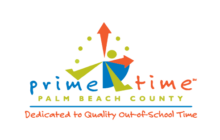6:30 pm - 9:00 pm
It was a great experience, I learned a lot. It gave me the opportunity to see some areas where I need to work to better my leadership and my program!
Lorena DAfterschool Professional
Active Learning
Do you know the difference between active learning and “hands-on” learning? Giving youth materials is just the beginning. This interactive training introduces strategies for incorporating active learning and helps you to create more powerful learning opportunities for youth after school.
Core Competencies Addressed
Core Knowledge Area – Child/Youth Growth and Development:
1.B: Demonstrate knowledge and understanding of the multiple influences on development and learning – Entry Level and Level 1.
1.C: Use developmental knowledge to create healthy, respectful, supportive and challenging environments – Entry Level, Level 1 and 2.
Primary QIS Scales Addressed
Supportive Environment:
II-I: Activities support active engagement.
II-J: Staff support youth to build new skills.
Training Objectives:
Participants will:
a. Have opportunities to experience active learning first hand.
b. Gain experience building the six principles of active learning into their programs.

